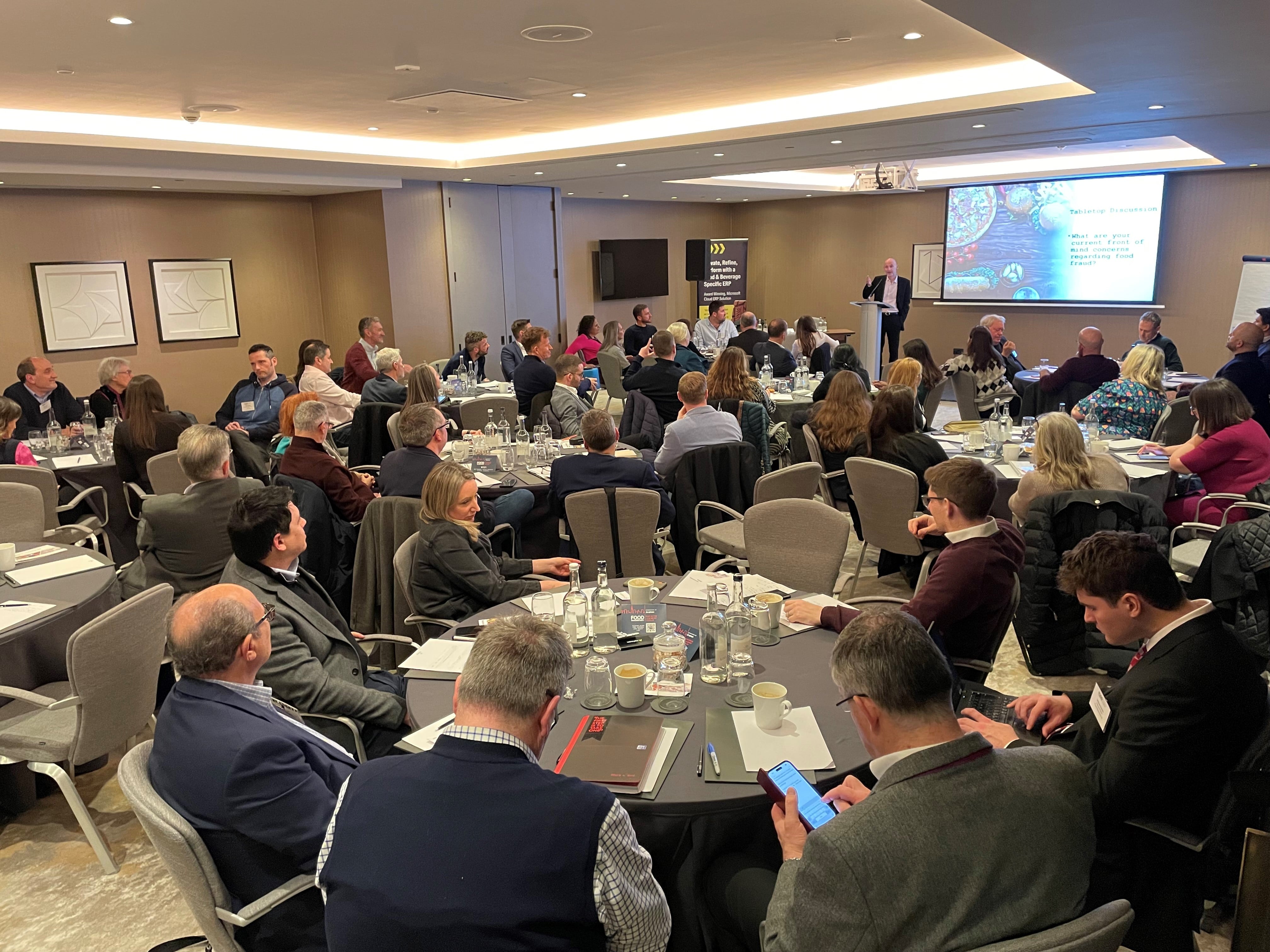Two areas of people leadership which have been gaining a lot of attention over the last few years are the way we manage and encourage diversity and the way we ensure the mental and physical wellbeing of those who work for us. However, do President Trump’s recent remarks, suggesting a desire to scrap US Government DEI pledges, indicate that the pendulum is starting to swing the other way?
For the vast majority of food businesses, it is the people within the business that ultimately determine its success or failure. So ensuring that employees are healthy, motivated and engaged should be a priority for any leader.
Wellbeing since Covid
During the Covid pandemic, most food businesses were forced to pay far more attention to the wellbeing of their staff. This may have been primarily to help support employees through the difficult times during lockdowns. However, changing work patterns post-Covid as well as increasing concerns being raised about individuals’ mental health more widely have resulted in wellbeing becoming an ongoing focus for all responsible businesses.
At the recent Food Manufacture Business Leaders Forum (BLF), 74% of attendees reported an increase in requests for mental health and wellbeing support since 2020. In one sense, this may be a worrying trend but there may also be a positive side to this, as it might indicate staff are more willing to raise their, previously hidden, concerns.
Creating a positive work climate
Wellbeing, from a work perspective, goes well beyond merely accommodating employees’ mental health. It is also about creating a positive climate in which employees feel safe – to work without discrimination, harassment or bullying; and more positively, where individuals feel safe to ask for help, to offer ideas and try new ways of working without fear of retribution. Interestingly, 81% of BLF attendees reported they felt they offered a safe environment for staff to raise mental health and wellbeing issues. If true, this is very encouraging, although it was also acknowledged that it may be perceived as safe for those working at more senior levels but that perceptions for others in their businesses may not be so positive.
The role of wellbeing surveys
The use of carefully structured business-wide staff surveys can provide useful indicators of wellbeing trends and staff sentiment. There are generally two types of survey that can be used – those that specifically ask questions about individual’s mental and physical wellbeing and, more broadly, staff climate surveys that can give indications about the quality of leadership and its effect on the workplace environment. Both are valid exercises to undertake, especially if conducted alternately, perhaps once each year.
While 61% of BLF attendees reported using wellbeing surveys on an annual or more frequent basis, a worrying 39% said they did not conduct any wellbeing survey.
Remaining close to staff
That said, surveys can only provide a snapshot and highlight possible trends. They also rely on the openness and honesty of those responding. The best way to maintain a watch on employees’ wellbeing has to be through frequent open and honest one-to-one conversations with all staff. Training was welcomed by BLF attendees to help managers to recognise the warning signs and also how best to respond to potential sensitive issues they may encounter.
DEI – a help or a hindrance?
President Trump’s early executive orders to dismantle most US Government’s Diversity, Equality and Inclusion (DEI) initiatives, appear to have been largely driven by a false assumption that such initiatives are a hindrance or will result in poorer decision-making and outcomes for governments and for businesses.
However, enlightened leaders recognise the truly positive impact that can result from creating and harnessing the talents of a truly diverse workforce. As Kate Halliwell, chief scientific officer at the Food and Drink Federation (FDF) commented in my column, The Talent Poole, in June 2023: “Embracing diversity brings with it a variety of perspectives and approaches, creating an environment where individuals can thrive and learn. For example, factory workers are the core of any manufacturing business and they reflect the diverse communities in which they operate.”
Engaging staff in the business
A key component of maintaining a positive and healthy workforce is to ensure they feel able to play an active role in support of the business. Having been a judge for the Food Manufacture Excellence Awards (FMEAs) for a number of years, I have had the great privilege of reading the many entries for, amongst others, the Community Award. Within these submissions I am always inspired by the wide range of innovative and motivating schemes that food businesses have put in place to help engage and involve their workforces – at all levels.
For example, rather than merely shaving off a small amount of margin to give to good causes, the very best employers actively encourage their teams to contribute to the work of a nominated charity or cause. Not only do these initiatives positively support the (often local) community, but also provide invaluable new perspectives and experiences to help grow and motivate the people within their businesses. A real win-win.
Gamification
Another way to engage staff in the business and to help develop a positive work climate is through novel approaches such as ‘gamification’. Rather than focus on mundane targets which most employees see as being ‘done to them’, gamification attempts to bring some fun into the process, by are incentivising and encouraging changes in behaviours through more fun activities. Tom Hollands, innovation and technical director at Raynor Foods explained: “Many people entering our industry are very climate conscious and want their roles to have meaning and substance in tackling the climate emergency. To foster a positive dynamic that appeals to this sensibility, we have applied a digitally powered gamification overlay to our entire operation which allows individual and team actions to earn points for sustainable practices (KPIs) - and these points earn rewards.”
Hollands continued: “This means creating a positive work climate as well as a positive impact on the wider climate. Employee creativity and problem-solving is also encouraged, expanding the game base. Thus, the more sustainable our employee-owned operation becomes, the more points are earned and the more the prize pool increases. What’s good for the employee is good for the business and is, in turn, good for the planet, creating a positive, engaging and sustainable work culture.”
Prevention is the better than cure
Despite recent cross-Atlantic sentiments, it is clear UK food business leaders still see the critical need to ensure their employees are valued and fully supported in terms of wellbeing and more generally through positive DEI actions. Mental wellbeing, in particular, is a significant issue for most business leaders.
However, it is recognised it is better for all to take preventative steps to provide a positive and supportive work environment as opposed to having to focus on resolving wellbeing issues resulting from poor leadership support.
February 2025’s Business Leaders’ Forum was proudly sponsored by Aptean.




